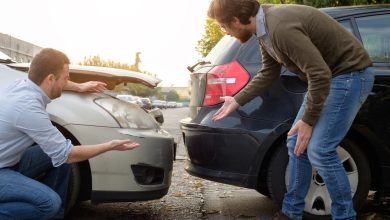A Guide To Diesel Emissions Claims

What Are Diesel Emissions Claims
Diesel emissions claims came about as many automakers have been using software programmed to cheat testing. As a result, the reported emissions output of these cars was way less than in reality.
The vehicles affected were made in the period of 2008 and 2019. While these are the vehicles that have been initially uncovered to hold this defeat device, it has recently been claimed that Mercedes has installed similar technology into a number of their diesel vehicles. Mercedes has been ordered to recall around 90,000 vehicles across England and Wales.
An average of £8,500 in compensation is estimated for each claim. It is also estimated claims could be worth up to £10,000. The action could possibly total up to £10.2 billion across the UK. This would make it one of the biggest group actions ever seen in the UK.
Who Can Claim
People who purchased a diesel car between 2008 and 2019 could be eligible for a refund due to the scandal. The timing of the litigation varies depending on the brand of the car. Currently, Mercedes seem to be in the spotlight, soon to be followed by Vauxhall, Ford, Renault and Seat. Prominent claims company, TheClaimsGuide.com, have recently started to register claims against Mercedes.
Customers have lost out for the following reasons:
- The increased Nitrogen Dioxide levels are harmful to children, adults, and the environment
- Customers may have experienced higher fuel bills and maintenance costs
- The performance of these vehicles was negatively affected
Current and Previous Mercedes Owners can instantly find out if they are eligible by giving the car registration number, plus a few more details like the date they bought the car. Mercedes emissions claims are being litigated on a no win, no fee basis.
Things To Consider Before Joining A Claim
If you are thinking of making a claim, as with all legal action, there are many points to consider…
You will need a law firm to start a claim. It is almost impossible to start a claim on your own
These are complex legal proceedings that require technical expert opinion to establish facts. If you were to try to bring a claim yourself, the costs would be too high, which you wouldn’t get back if the decision went against you.
So joining a group legal action may be the only viable option. Even then there’s no guarantee of winning. But these claims are generally litigated on a no win no fee basis.
It covers vehicles made between 2008 and 2019 bought on finance or outright
In general, vehicles made from about 2008 to about 2019 by roughly 20 brands are included in the current legal actions. You can sign up for claims for multiple vehicles. It is possible other manufacturers might be included in future.
Law firms may still take you on if you leased or bought the vehicle on finance, bought the car second hand or new, you no longer own the vehicle, or it was a company car (as long as the contract was in your name).
However, you won’t be able to claim if you bought the vehicle in a country outside of the UK.
It’s very quick and easy to check if you are eligible to claim
If you want to sign up, there are firms that will take your details for many brands of car. Currently, law firms are concentrating on claims against Mercedes in particular. However, many will also take details for other carmakers, but won’t necessarily start litigating straight away.
For example, TheClaimsGuide.com allow you to make an emissions claim against Mercedes instantly or log your details for other car brands with the intent of contacting you when they can process claims for that car brand. If you want to make a claim against Mercedes, all you need to do is enter your vehicle’s number plate and you’ll be told instantly if your car or van is one of the models potentially affected.
Signing up is free – but not risk-free
As claims are litigated on a no win no fee basis, you won’t have to pay anything upfront to join. However, if you do join and the claim is successful, somewhere between a third and a half of the payout will go to the law firm.
If a claim is not successful, you’re unlikely to have to pay anything, but it’s not impossible. If a court ruled in favour of the manufacturer, you could technically be liable for its legal costs. In practice, this would likely be covered by the law firm’s ‘ATE’ also known as ‘after the event’ insurance – but this cover will be capped, so it’s not bulletproof. Most law firms have, or will take out, sufficient ATE cover to protect you from having to pay legal costs. Once again, this is unlikely an issue but technically possible.
Payouts might end up being £1,000s – but compensation is not guaranteed
This kind of group legal action claims are largely untested in the English and Welsh courts and there’s no guarantee any of the current claims will be successful.
Many firms say that, if the claims are successful, drivers could get several thousands of pounds in compensation due to paying too much for vehicles that didn’t meet emissions standards. PGMBM suggests you might be able to claim up to £20,000 for a Mercedes claim.
But some law firms say payouts aren’t likely to be this high. Firstly, it is possible that any case could be settled out of court for a fraction of the original claim value. Also, the court will have to look at the actual financial loss each claimant has suffered as a result of the scandal (for example, did they actually pay more than they otherwise would have for the vehicle).
Claims could take years
Cases of this type may take five years or longer to progress through court.
As an example, the original VW Group case, the most advanced of the current crop of cases, had its first hearing in 2019 and is yet to make it to a full trial. The date is currently set at January 2023. If VW loses it may be able to appeal, which would stretch proceedings out further.
Claims are for those who claim to have lost out due to the emissions flaws
This is likely related to some kind of financial loss. As an example, if you paid more for the vehicle than you otherwise would have, or you wouldn’t have bought it at all had you known about the alleged emissions flaws. You would have lost out if you sold it on but got less for it than you would have had it not been affected.
Many firms may ask you about this when you sign up. They may ask to confirm that you would not have acquired your vehicle, or would have paid less for it if you had known that it was fitted with emissions cheating software.
Ultimately, if you believe you were mis-sold, the downsides to joining a claim are relatively limited. The possibility of losing money, though not impossible, is slim.




